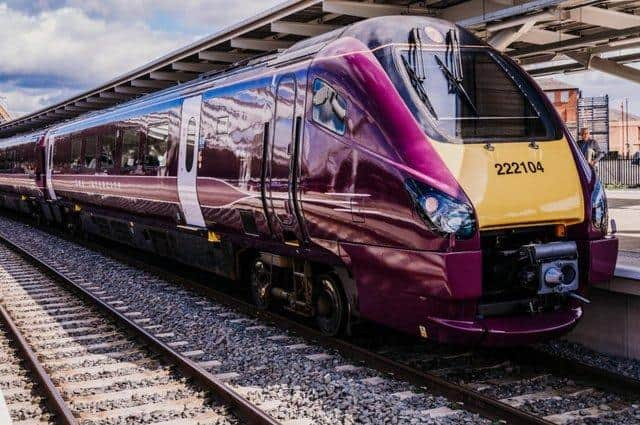'Snail's pace': Government to electrify Nottinghamshire mainline by early 2030 after council leader's progress jibe
and live on Freeview channel 276
Network Rail is currently working on what it describes as the biggest programme of improvements to the line since its completion in 1870.
This includes improvements to the midland main line, which takes in the whole of the East Midlands, including Derby, Nottingham and Leicester, and runs from London St Pancras to Sheffield at its most northerly point.
Advertisement
Hide AdAdvertisement
Hide AdCalls for the line to be fully electrified have been ongoing for years and ministers gave this commitment last year.


Electrification of rail travel is viewed as being better for the environment and more cost-effective for taxpayers.
The next phases of the work will cover improvements to the line from Kettering to Wigston.
However, the pace of the work was criticised during a Nottingham City Council communities and environment scrutiny committee on April 3.
Advertisement
Hide AdAdvertisement
Hide AdCoun David Mellen (Lab), council leader, said: “I think they have got somewhere south of Leicester at the moment, but the electrification is going at a snail’s pace, and having electric trains coming into Nottingham would make a big difference.
His comments came as a draft review of the council’s ambitions to become carbon neutral by 2028 concluded the authority may have to consider more ‘controversial’ actions to meet its goals amid significant financial challenges.
These actions could include a clean air zone, within which vehicles that fail to meet emissions targets would be charged a fee.
Responding to Coun Mellen’s comments, a Department for Transport (DfT) spokesperson said: “This claim is untrue.
Advertisement
Hide AdAdvertisement
Hide Ad“Work is well underway to electrify the midland main line, with progress being made to install overhead line equipment between Kettering and Wigston and deliver upgrades south of Bedford during 2025.
“New hybrid electric trains will be introduced on the route from 2025 as we work towards a net zero rail network by 2050, having already electrified 800 miles of rail track in the last seven years alone.”
The DfT said it is working with Network Rail through the midland main line project to demonstrate how electrification can be delivered efficiently.
It says the project will also improve air quality and the sustainability of rail travel by removing diesel trains from the line.
Advertisement
Hide AdAdvertisement
Hide AdThe extension of the electrification from Wigston to Nottingham and Sheffield is planned for completion by the early 2030s, subject to business case approvals.
As part of Network North, the DfT says the midlands will receive £9.6bn, with a guaranteed £1.5bn through the new East Midlands Combined County Authority.
The Network North project was first unveiled after high-speed travel to the region was dropped when HS2’s northern leg beyond Birmingham was scrapped last year.
The DFT added: “We have just provided an initial £123m for the Midlands Rail Hub, backed overall by £1.75bn of increased investment to speed up journey times, increase capacity and boost the frequency of services across the region.
“Additionally, the midlands will benefit from £2.2bn through the Local Transport Fund, enabling local leaders to focus on local transport priorities for the people in their area.”
Comment Guidelines
National World encourages reader discussion on our stories. User feedback, insights and back-and-forth exchanges add a rich layer of context to reporting. Please review our Community Guidelines before commenting.